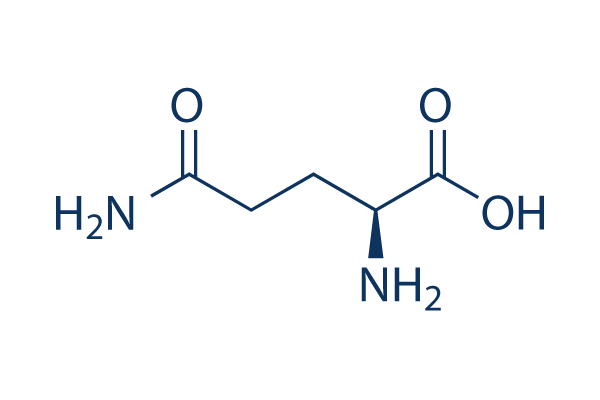Supplements: Glutamine
Glutamine is quite popular amongst bodybuilders and readily available from most online stores for purchase. All in all, it seems to help prevent destruction of muscle tissue rather than being actively anabolic when I personally looked over the studies. I am not doctor or specialist. Please consult an expert before supplementing anything. Here is my write-up about Glutamine looking at the conservative and positive site.
Facts & Figures
Glutamine is one of the 20 proteinogenic amino acids which are in the standard genetic code. These split into groups of essential and non-essential amino acids. These two groups derive from whether they can be synthesized by the body or not. Glutamine falls into the group of non-essential amino acids as your body produces it and you do not have to provide it via your diet.
19% of Glutamine is made of nitrogen and it is used in protein synthesis and lipid synthesis. Roughly 61% of your skeletal muscle is made from glutamine and therefore 90% of the overall production of it takes place in the same area of the body. While the liver takes a regulating role bringing down surplus glutamine produced by the gut and intestines, the brain and lungs also contribute to the production at a significantly lower level than the skeletal muscle.
Benefits & Risks
Depending on the source you will find a wide-ranging claim of benefits provided by the supplementation to name a few:
- 400% more growth hormones in the body when supplementing l glutamine
- Improves gastrointestinal activity(1)
- Helps heal ulcers and leaky gut (2)
- Is an essential neurotransmitter in the brain and helps with memory, focus, and concentration (3)
- Improves IBS and diarrhea by balancing mucus production (4)
- Promotes muscle growth and decreases muscle wasting (5)
- Improves athletic performance and recovery from endurance exercise (6)
- Improves metabolism and cellular detoxification (7)
- Curbs cravings for sugar and alcohol (8)
- Fights cancer (9)
- Improves diabetes and blood sugar (10)
When you do your own research I would personally recommend that you take a close look at who is writing the content. Anyone who is a physiotherapist, nutritionist and in the bodybuilding / strength industry will most likely have an agenda to push glutamine as a product for you to purchase. Therefore, the content will be written in a way that blows the benefits out of proportion. That does not necessarily mean, that the claims are completely wrong, just slightly misrepresented to increase sales.
On the other end of the scale, we have doctors, governments, and other official institutions. For them, the risk is considerably higher if the publicize wrong statements, therefore,these sources usually come in from the very cautious side.
The truth mostly lays somewhere in the middle when you connect the dots. Read several articles from both ends of the spectrum to get the gist of it.
On the risk site for glutamine, the most striking input that it might function as a contributor to brain tumors. I do not understand the complete ins and outs of it, but you will find material outlining that there is a possibility of having a higher risk of a brain tumor occurring if you use Glutamine. These studies are not conclusive yet, still i think this is worth mentioning.
Glutamine products
Glutamine can be bought as capsules, powder and part of a mix with creatine and protein components depending on the vendor and the training goal. As with every other supplement, they come in various packages, forms, concentrations and price ranges. A pure glutamine supplement should come in between 15€ to 20€ euro for 300g to 500g. A blended product with other components usually comes in a tub of 2.5kg and sets you back somewhere between 30€ to 60€.
Conclusion
Based on what I have read in the various medical reports and on supplementation sites that there is slim to no evidence that glutamine actively lets muscles grow. The benefit that I found most repeated was that it somehow helps to prevent the deconstruction of muscle tissue. This is helpful if you are training very extensive with high repetitions to avoid tissue breakdown, but seems to have no anabolic effect in itself. The risk you take for this is a not proven, but hinted at, possibility to have a higher risk of a brain tumor. Now there is always a study out there that eating too much of something leaves free radicals in your body and therefore you run a higher risk of cancer because of it, so that does not bother me too much.
I like the medical approach to this which states that you should not medicate if there is a need to. the same approach should be taken for supplements. If you can reach your goals (which you can) without taking supplements, there is no need to take them and spent your hard earned money on them.
Further reading
- Colostrum
- Creatine
- Digestive Enzymes
- Electrolytes
- Fish Oil
- GABA
- Glucosamine
- How much do I have to pay for supplements
- Multi-Vitamin
- Probiotics
- Protein
- Vitamin C
- Vitamin D
- What are supplements
- Which supplements are sold the most
- ZMA


